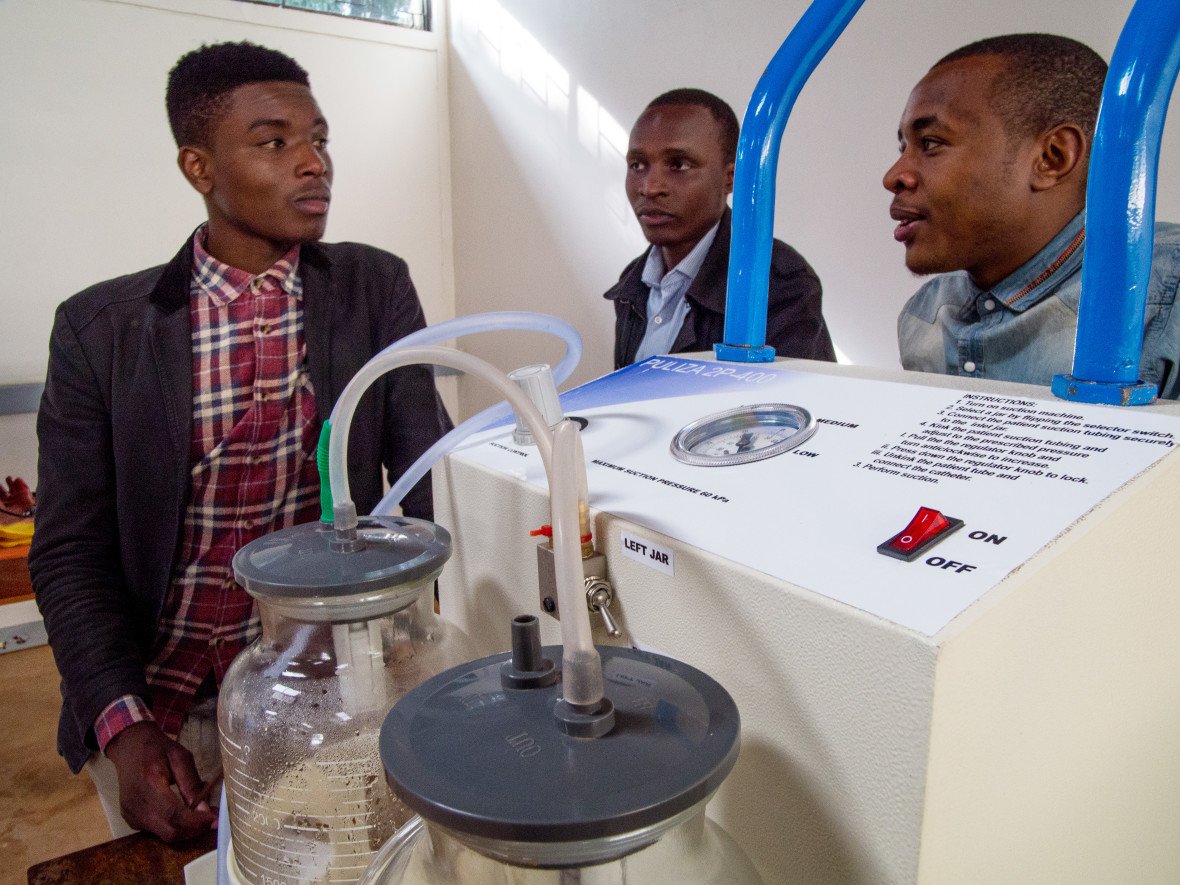This article was originally published on Concern Worldwide and can be found here.
Three tiny babies lie sleeping side-by-side in a single incubator in Kenyatta National Hospital’s Newborn Unit in Nairobi while nurses work busily around them.
The unit in Kenya’s largest public hospital is a busy place and skilled staff members do all they can with overstretched resources, including a lack of functioning medical equipment. “The babies are sharing incubators — sometimes two, sometimes three babies,” said Florence Ogongo, a senior nurse in the unit. “The risk for infection is very high.”

A critical shortage of working medical equipment is one reason why so many women and babies cannot receive the health care services they need for a healthy pregnancy and childbirth, resulting in needless deaths in developing countries, including Kenya. While Kenya has made progress in reducing preventable deaths of mothers and newborns, it stands among the top ten countries with the highest numbers of women dying from pregnancy and childbirth complications, according to a United Nations report. Because of the shortages and the sheer volume of patients, vital equipment like oxygen machines and incubators are being overused and are breaking down.
Often, because spare parts are hard to come by, the expensive and usually imported devices are never fully repaired or remain broken altogether. “The timely acquisition of spare parts can be a challenge because we do not have locally equipped shops,” says Shadrack Wamwayi, a biomedical engineer at the hospital. “To get a spare part from Germany or Europe or the U.S. can take a bit of time,” he adds.
NURSES AND ENGINEERS DESIGNING TOGETHER
Now, our project called the Maker Movement for Maternal, Newborn and Child Health is drawing on local skills and expertise to tackle the problem. Through a partnership between the University of Nairobi and Kenyatta National Hospital, university engineers and students are teaming up with maternity ward doctors, nurses, and biomedical engineers to design high-quality, affordable medical devices better suited for local needs.

“We are bringing together unusual voices to interact and come up with something as wonderful as a low-cost medical device,” says Dr. Edwin Mbugua Maina, Concern Worldwide’s Senior Program Manager in Nairobi.
OPPORTUNITY
From the initial nine devices found to be most needed, Maker prioritized and designed three: an examination light, a suction machine to remove fluids from a newborn’s airways, and a phototherapy machine for treating newborns with jaundice. After developing and refining multiple versions of the suction machine, the Kenya Bureau of Standards approved it for testing in a clinical setting.

Maker also provided a calibration center for repairing hospital devices and a brand new lab on campus stocked with equipment for designing and prototyping devices.
Concern Worldwide and our partners launched the new Maker Space in the university’s Science and Technology Park on June 29th at a celebratory event that included a panel and speakers from the Ministry of Health, UNICEF, and even Kenyan singer and celebrity “Wahu,” who was appointed Maker’s Goodwill Ambassador. “Maker uses our local talent, skills and expertise to help save the lives of Kenya’s mothers and babies,” Wahu said.

Other speakers echoed that theme. “In government, we believe our development will depend on innovations that understand our own needs and gaps,” said Zeinab Hussein, Kenya’s Principal Secretary of Gender Affairs.
The program taps Kenya’s reputation as the hub of excellence and innovation in technology on the African continent with a strong network of skilled and entrepreneurial engineers and youth.
NEW PARTNERSHIP WITH UNICEF AND PHILIPS FOUNDATION
Maker’s success since its 2014 launch has led to a new partnership between Concern Worldwide, UNICEF, the Philips Foundation, and Gearbox called the Maternal and Newborn Health Innovations Project. This will enable Maker to move in 2016 from a pilot within our Innovations for Maternal, Newborn & Health initiative into a thriving, ongoing Concern program to locally design, on a much wider scale, a range of devices for Kenya’s mothers and babies.
LOCAL SOLUTIONS TO LOCAL PROBLEMS
Key to this process, which sees engineers, students, and teachers visit the hospital and nurses visit the design lab, is finding out what the users of the machines — the maternity ward clinicians themselves — want and need. “The nurses would tell us, ‘Bring the handle up, it’s too low; the gauge is too small so make it bigger; and make the controls a lot simpler,’” said one engineering student.
And it’s about tapping local talent and expertise to meet these challenges.
“We are working to save the lives of thousands of women and babies and we can’t do it without engaging the health care workers who will be there, in that moment using the equipment we’re creating,” Maina said. “Because local problems need local solutions.”

By taking action on Global Citizen, you will have a chance to win tickets to this year's Global Citizen Festival in New York City on Sept. 24, 2016.